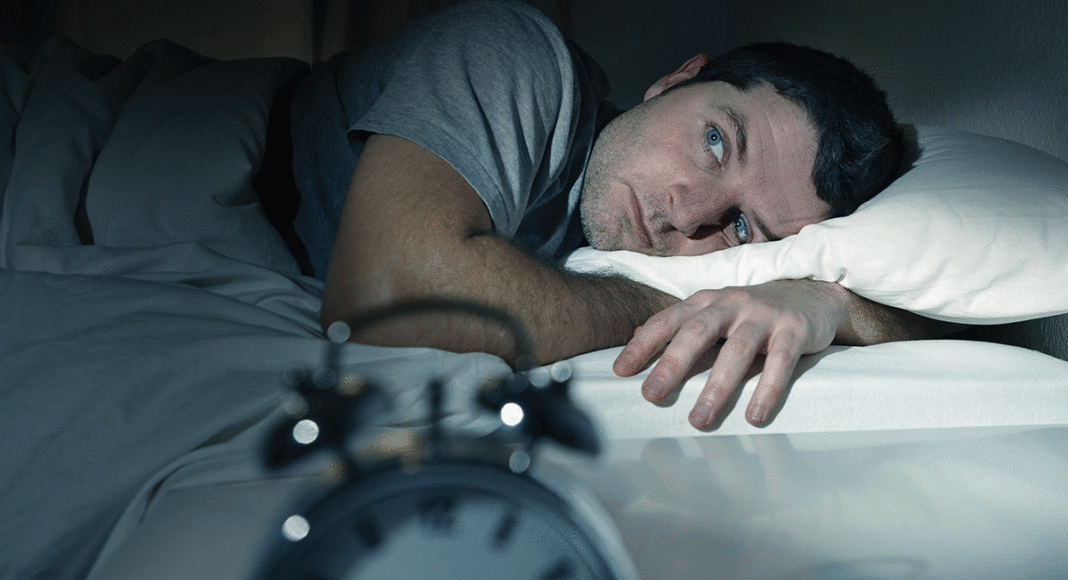For many Americans, problems with sleep are unfortunately the norm. A recent Consumer Reports survey showed that 27 percent of U.S. adults had trouble falling or staying asleep most nights, and 68 percent had sleep problems at least once a week. And according to the CDC, more than one-third of Americans don’t get enough sleep—and this lack of z’s increases the risk of developing chronic conditions such as obesity, diabetes, heart disease, stroke, and mental distress.
Many people also struggle with anxiety and stress, which can also be related to suboptimal sleep. These issues not only overlap, but they are so ubiquitous that they might as well be considered part of the human condition. Even more troubling is that, due to the difficulty of treating these symptoms of unease, many people often turn to alcohol, drugs, or medications as remedies, all of which are potentially addictive and carry with them harmful side effects. But what if a cure to these issues was as simple as replacing the blanket on your bed? Perhaps it’s worth a try.
Weighted blankets are simply blankets that are heavier than normal. Proponents and manufacturers claim that they can help with sleep problems, restlessness, anxiety, and stress, and typically recommend a blanket that is about 10-15 percent of a person’s body weight. The prevalence of sleep issues combined with the desire by many to find more natural and non-medication solutions makes it easy to see why weighted blankets are so trendy right now. According to Pinterest, weighted blankets are one of the top trends in 2018, with saves for the item up 259 percent over last year.
The theory is that they produce a calming effect due to a concept known as “deep pressure stimulation” (DPS), which is defined as firm but gentle squeezing, hugs, or holding that relaxes the nervous system. The feeling is similar to the warm and fuzzy mood produced by snuggling with a loved one or waking on a cold morning wrapped in a sea of blankets … it just feels good. DPS, also known as “grounding” or “earthing,” is thought to produce its soothing effects because it activates the parasympathetic nervous system. This may not only lower levels of the stress hormone cortisol, but also increase the levels of feel-good hormones like oxytocin and endorphins and feel-good neurotransmitters like dopamine and serotonin. The end result is a peaceful and calming effect on the mind and body.
Traditionally, weighted blankets have been used to treat children with sleep, anxiety, stress and sensory disorders often related to autism—but according to a 2015 study published in the Journal of Sleep Medicine and Disorders, they are showing promise treating adults in the general population experiencing the same issues. The study found that using a weighted blanket led to longer sleep bouts and fewer movements during sleep in participants. More subjectively, participants said they generally enjoyed using the blankets and found that they made it easier to get to sleep, improved sleep quality, and led to feeling more refreshed in the morning. The authors concluded: “Overall, we found that when the participants used the weighted blanket, they had a calmer night’s sleep. A weighted blanket may aid in reducing insomnia through altered tactile inputs, thus may provide an innovative, non-pharmacological approach and complementary tool to improve sleep quality.”
Additionally, a study published in Occupational Therapy in Mental Health, found that weighted blanket use was not only safe, as evidenced by vital sign metrics, but also that 63 percent of the participants using the weighted blanket reported lower anxiety after use, and 78 percent preferred the weighted blanket as a calming modality. Another study published in the Journal of Alternative and Complementary Medicine found that grounding participants for eight weeks led to lower cortisol levels during night-time sleep, and the subjective report of lowered pain, stress and sleep dysfunction in nearly all participants.
Whether or not a weighted blanket is right for you or your child is up to you—and perhaps worth a try. One downside is that they often cost upwards of $200. Worth it? Maybe. Some have also reported that they can be too hot, are not very portable, and that they can be too heavy for children to use and feel comfortable with.













